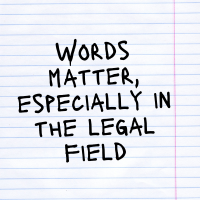Legal translation services are vital for law firms in large global cities like Miami or New York City. Developing a strong, ongoing relationship with a legal translation provider can help your firm better serve your clients and improve the overall efficiency of your operations.
Here are five reasons why every big city law firm needs a legal translation service on speed dial.
1. Legal translation is crucial for compliance.
In today’s global economy, legal translation services are crucial for law firms to ensure compliance with federal regulations for themselves and their clients. For instance, the Federal Trade Commission’s Rule 803.8 requires verbatim English translations to be submitted along with foreign language documents. As another example, U.S. businesses operating in foreign countries must show proof of compliance with the Foreign Corrupt Practices Act.
Also, most U.S. courts have similar policies stating that foreign language documents must be translated into English to be used in depositions or introduced as evidence.
In short, to ensure compliance and avoid legal trouble, law firms must prioritize accurate translations of legal documents.
2. Major cities are increasingly diverse.
In 2018, 67.3 million U.S. residents spoke a language other than English at home, a number that’s almost tripled since 1980. This trend is most pronounced in major cities. For example, more people speak Spanish at home than English in Miami, Florida. With over 200 different languages, New York City is the most linguistically diverse city in the world.
For law firms in major global cities like these, clients can come from all around the world and may need help with a variety of matters, ranging from immigration issues to real estate law to civil and criminal cases.
The most common language in the United States for legal translation is Spanish. After English, Spanish is the second most common language, with approximately 41 million speakers. Miami, New York City, Los Angeles, and Houston, Texas, are the cities with the most Spanish speakers.
3. Many types of documents require legal translation.
No matter what type of law your firm focuses on, you will likely come across documents that must be translated for legal proceedings if you have an international clientele.
For example, here are some of the most common types of documents that legal translators handle:
Financial records
These include bank account statements, tax returns, and other financial documents.
Personal identification documents
These are often needed in immigration cases, family law or inheritance matters. Personal identification documents can include the following:
- Birth certificates
- Marriage certificates
- School transcripts
- Education or employment history
- Lease or mortgage documents
- Criminal records
- Adoption decrees
Contracts and Other Business Documents
These include real estate contracts, lease agreements, corporate formation documents, business partnerships and agreements, and more.
4. Timing can be everything in the courtroom.
 Law firms often operate under tight deadlines. In this fast-paced environment, last-minute translation requests can be a significant headache. That’s why it’s essential to have a trusted legal translation provider to turn to. Finding and vetting a translator on short notice can be time-consuming and lead to a lower-quality translation. With a reliable partner, law firms can ensure that they meet tight deadlines without sacrificing quality or accuracy.
Law firms often operate under tight deadlines. In this fast-paced environment, last-minute translation requests can be a significant headache. That’s why it’s essential to have a trusted legal translation provider to turn to. Finding and vetting a translator on short notice can be time-consuming and lead to a lower-quality translation. With a reliable partner, law firms can ensure that they meet tight deadlines without sacrificing quality or accuracy.
Law firms can also benefit from a deeper understanding and better communication by developing a close working relationship with a legal translation provider. This collaboration enables the provider to understand the law firm’s unique preferences and requirements, including formatting, terminology, and quality standards, which streamlines the translation process and reduces costs in the long run.
5. Words matter, especially in the legal field.
 Whether it’s the fine print in a contract or a document submitted as evidence, every word matters in the legal profession, and the law has its own unique language and terminology. As a result, a single mistranslated word on a legal contract can have a domino effect: delaying the close of an important business deal, invalidating the document itself, and perhaps even opening the door to a lawsuit.
Whether it’s the fine print in a contract or a document submitted as evidence, every word matters in the legal profession, and the law has its own unique language and terminology. As a result, a single mistranslated word on a legal contract can have a domino effect: delaying the close of an important business deal, invalidating the document itself, and perhaps even opening the door to a lawsuit.
Beyond that, there’s often more than just money at stake. There are many ways a mistranslated document could ruin a client’s life, including but not limited to immigration applications, divorce proceedings, family law and child custody cases, and criminal trials.
As a result, legal translation is an exacting and specialized discipline. An excellent legal translator needs in-depth knowledge of the source and target languages, legal terminology in both languages, and the legal systems of both countries. In addition, different legal systems have legal concepts that don’t always map directly onto one another, and translators need to know how to navigate these issues when they arise.
That’s why investing in a long-term relationship with a legal translation provider you can trust is so important. A reliable legal translation provider can be a game-changer for law firms in major cities, enabling them to operate more efficiently, effectively, and confidently in a diverse environment.
At TransForma, we put a premium on building long-term relationships. Our legal clients know they can count on us to deliver consistent quality, thanks to our tight network of professional, experienced linguists. As a result, we were rated one of the top three translation providers by the South Florida legal community two years in a row. We’re headquartered in Miami, so we understand the language needs of businesses operating in a global city, and we’re here to help with your legal translation needs. Contact TransForma for a quote today!


